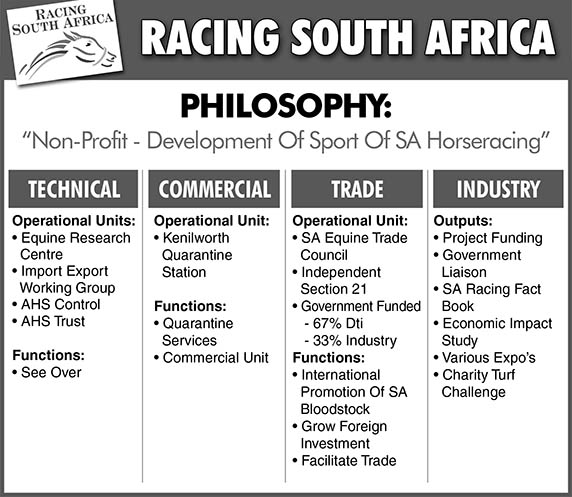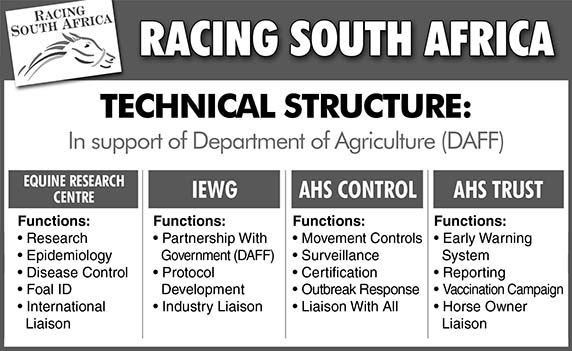The International Veterinary Workshop hosted by Racing South Africa and the SA Veterinary Services in 2006 identified two main constraints in South Africa’s ability to fully develop its horse export business and, consequently host international equestrian competition.
The first was the regulatory environment that did not allow countries infected with African horse sickness (AHS) the ability to easily resume exports following an outbreak (amongst other constraints) and the second, a lack of credible science to provide importing countries with the confidence to consider relaxing protocols.
In this respect new, more favourable guidelines for AHS (OIE AHS Code) were adopted at the OIE General Assembly in May 2012 and the Equine Research Centre developed a new diagnostic test for AHS, the RT PCR, using cutting edge technology. The test was completed and the science reviewed and a scientific article accepted for publication in the highly reputable Journal of Virological Methods last November.
During 2012, an expanded strategy was developed which incorporated the latest OIE guidelines for exporting from either an AHS Infected Area or from an AHS Free Area, surveillance of the AHS Controlled Area being highlighted as being of critical importance. The OIE guidelines that allow countries to apply for country or area freedom from AHS are the following:
1. General conditions including surveillance- proof that there is no AHS virus circulating in the area
2. Proof that adequate control measures are in place to prevent introduction of AHS Virus
3. Proof that adequate control measures are in place to prevent transmission of AHS Virus should there be an incursion
4. Convincing evidence to prove the country’s ability to maintain free status in the country or region
South Africa’s application to the OIE for official recognition of an African horse free area was submitted by SA Veterinary Services last November and is being currently processed. The other critical area addressed in the strategy was that of available resource to perform the many functions required to maintain South Africa’s export status.
Like many other countries around the world, the South African Government has formed strong partnerships with industry to address resource and skills shortages. On a number of levels, Racing South Africa has developed support structures with the SA Veterinary Services (DAFF) outlined in the organogram above.
This strategy was independently assessed and supported by the Thoroughbred Racing Trust’s veterinary consultant, Dr J Boening. The next step is to consolidate the resource to fund and manage the strategy.
Assuming there are no further outbreaks of AHS in the AHS Controlled Area before May 2013, South Africa will be in a position to apply to the European Union and to those trading partners who follow the EU protocol to lift the temporary horse export embargo imposed following the 2011 outbreak in Mamre.
Racing South Africa and the SA Veterinary Services wishes to thank all horse owners, equestrian clubs and the racing industry for their co-operation and assistance in moving South Africa’s horse internationalisation strategy forward.
Peter Gibson
CEO – Racing South Africa











